What Makes Cocoa Powder Halal? Key Certification Standards Explained
What Makes Cocoa Powder Halal? Key Certification Standards Explained
In Muslim-majority countries such as the United Arab Emirates (UAE), Halal certification plays a crucial role in consumer trust, food regulation, and purchasing decisions. But what exactly makes a product like cocoa powder Halal—and how can food manufacturers ensure they are sourcing the right ingredients?
What Does “Halal” Mean in Cocoa Powder?
The term Halal refers to anything that is permissible under Islamic law. For cocoa powder, this means it must:
-
Be free from alcohol, pork derivatives, or any ingredients considered Haram (forbidden).
-
Not be contaminated during production, packaging, or transport with any Haram substances.
-
Be processed using equipment that is clean and free from cross-contamination with non-Halal ingredients.
Although cocoa beans are naturally Halal, processing methods and added ingredients such as emulsifiers or flavor enhancers can affect its status. For example, if the alkalizing agents used in alkalized (Dutch-processed) cocoa powder are derived from non-Halal sources, the final product may no longer be acceptable.
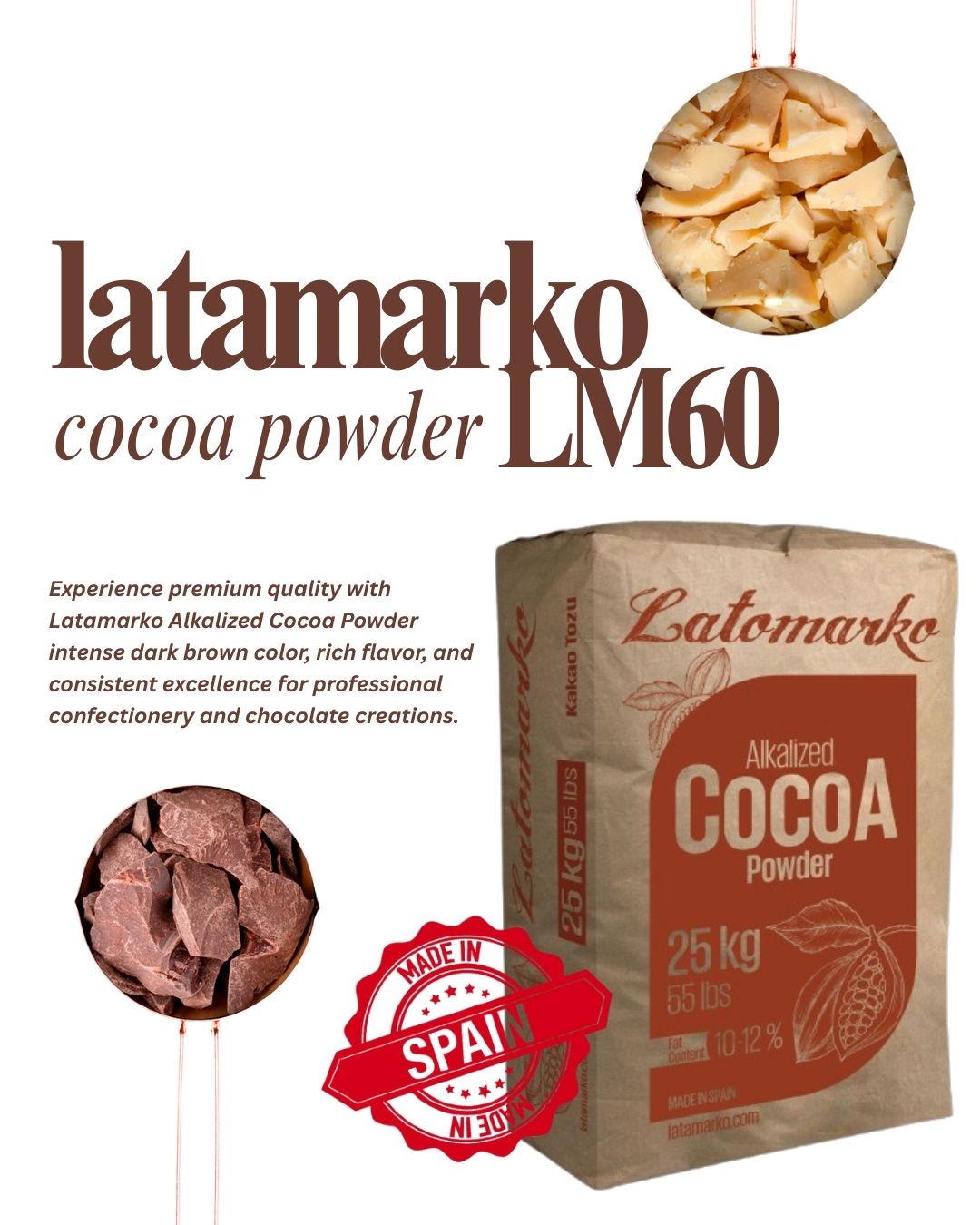
Key Halal Certification Bodies
To ensure compliance, many manufacturers obtain certification from globally recognized Halal authorities, such as:
-
JAKIM (Malaysia)
-
ESMA (UAE’s Emirates Authority for Standardization and Metrology)
-
GSO (Gulf Standardization Organization)
-
IFANCA (USA)
-
Halal Control (Europe)
These bodies audit the entire supply chain, including raw material sourcing, processing, packaging, and transportation.
Why It Matters in the UAE Market
In the UAE, food products with official Halal certification enjoy better market access and greater consumer confidence. Supermarkets, bakeries, and chocolate producers often require suppliers to present recognized Halal documentation.
For example, brands like Latamarko, a manufacturer of Halal-certified alkalized cocoa powder in Spain, are increasingly favored by food producers across Dubai and the wider GCC.
Conclusion
Halal certification in cocoa powder is not just a label—it’s a commitment to purity, traceability, and consumer respect. For manufacturers in the UAE, sourcing Halal-certified cocoa ingredients is essential for both compliance and brand credibility.
latamarko alkalized cocoa powder lm60
Types of Gelatin from Turkish Manufacturer
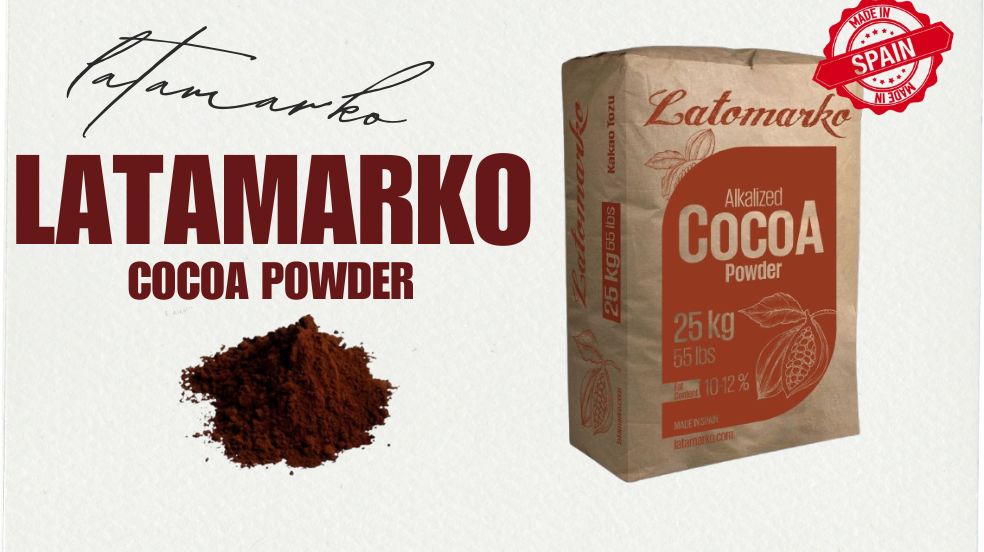
Halal-Certified Cocoa Powder in the UAE: Demand, Growth, and Trends
Over the last decade, the United Arab Emirates has experienced a significant rise in demand for Halal-certified food ingredients, driven by both local consumption and its role as a re-export hub in the Middle East. Among the most in-demand Halal-certified ingredients is cocoa powder—a key component in chocolate, beverages, bakery, and confectionery production.
Why Halal Certification Matters in Cocoa Products
While cocoa beans are naturally Halal, the processing stage introduces complexities. The addition of alkalizing agents, flavorings, or emulsifiers means manufacturers must verify that these additives are also Halal-compliant. In response, international cocoa producers are seeking recognized Halal certification to meet UAE regulatory requirements and customer expectations.
As a result, Halal-certified cocoa powder has become a top priority for:
-
Chocolate factories
-
Café chains and dessert brands
-
Foodservice suppliers and wholesalers
-
Private label manufacturers
The UAE as a Growing Market for Halal Cocoa
According to industry insights, the UAE has become one of the leading importers and distributors of certified Halal cocoa ingredients in the GCC. This is due to:
-
The country’s diverse and health-conscious population
-
Governmental support for Halal food standards via ESMA
-
Dubai’s position as a logistics hub for food re-export to Saudi Arabia, Kuwait, and beyond
In this environment, Halal compliance is not optional—it’s expected. Retail chains, government contracts, and major food buyers often require suppliers to provide documentation proving Halal integrity at every level of production.
Meeting the Demand: Latamarko as a Case Study
An example of a manufacturer responding to this demand is Latamarko, a Spanish producer of Halal-certified alkalized cocoa powder. Through its export partner MT Royal, the brand offers UAE food companies direct access to certified cocoa powder, backed by health certificates, lab analysis, and full compliance with UAE import regulations.
Conclusion
As the UAE’s Halal food sector continues to grow, so too does the need for Halal-certified cocoa ingredients that meet international quality and religious standards. Choosing reliable suppliers with verified certification is the key to staying competitive and compliant in the region’s thriving food industry.
cocoa powder for chocolate production-Best price
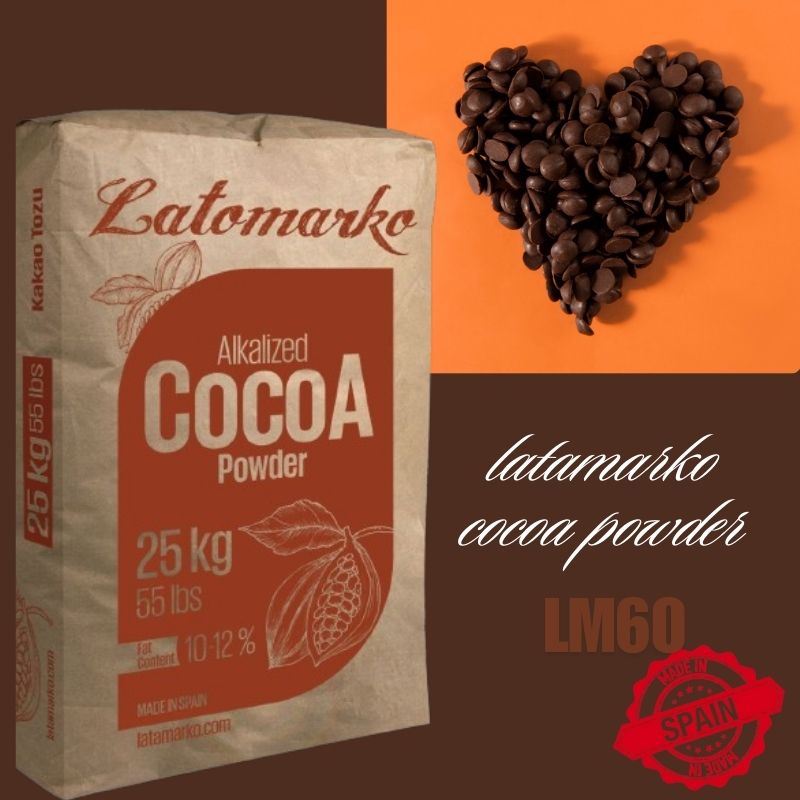
Top Cocoa Derivatives with Halal Certification for Food Manufacturers
Top Cocoa Derivatives with Halal Certification for Food Manufacturers
For food manufacturers in the UAE and wider Middle East, sourcing Halal-certified cocoa derivatives is essential—not only for regulatory compliance, but also for building trust with end consumers. As the demand for Halal food ingredients continues to rise across the region, more producers are looking for reliable suppliers of Halal-certified cocoa-based products.
Here’s a look at the most commonly used Halal-certified cocoa derivatives in the food industry, and why they matter.
1. Alkalized Cocoa Powder
Also known as Dutch-processed cocoa powder, this is one of the most popular cocoa ingredients in chocolate, beverage, and bakery formulations. When certified Halal, it ensures:
-
No alcohol-based solvents or Haram additives
-
Compliance with UAE and GCC food import standards
-
A clean label for premium chocolate and dessert brands
Brands like Latamarko offer Halal-certified alkalized cocoa powder with full documentation and European production quality.
2. Natural Cocoa Powder
This minimally processed cocoa powder is used in various applications such as cookies, cakes, and protein bars. Although the processing is simpler, Halal certification is still important to guarantee:
-
Non-contaminated equipment
-
Clean handling and storage
-
Compatibility with Halal-sensitive product lines
3. Cocoa Liquor (Mass)
Used as a base in chocolate production, cocoa liquor must be sourced from certified facilities to ensure no cross-contamination with non-Halal materials. It’s a crucial component for:
-
Bean-to-bar chocolate manufacturers
-
Premium couverture chocolate lines
-
Export-compliant finished goods
4. Cocoa Butter
Often used in high-end chocolates, confectionery fillings, and beauty applications, cocoa butter can also be Halal-certified. Manufacturers must ensure:
-
The extraction method is alcohol-free
-
Storage containers are clean and certified Halal
-
Batch traceability is documented
5. Cocoa-Based Spreads and Pastes
Products like chocolate hazelnut spreads often use combinations of cocoa powder, cocoa liquor, and oils. For UAE supermarkets, Halal-certified chocolate spreads are a key requirement, especially for importers working with institutional buyers and airlines.
Conclusion
From powder to butter to liquor, Halal certification across all cocoa derivatives is becoming standard in the Middle Eastern food supply chain. Manufacturers who prioritize Halal compliance in their sourcing—especially from trusted partners like Latamarko—are better positioned to meet growing consumer and regulatory expectations in the UAE.
Food industry raw materials – list of products
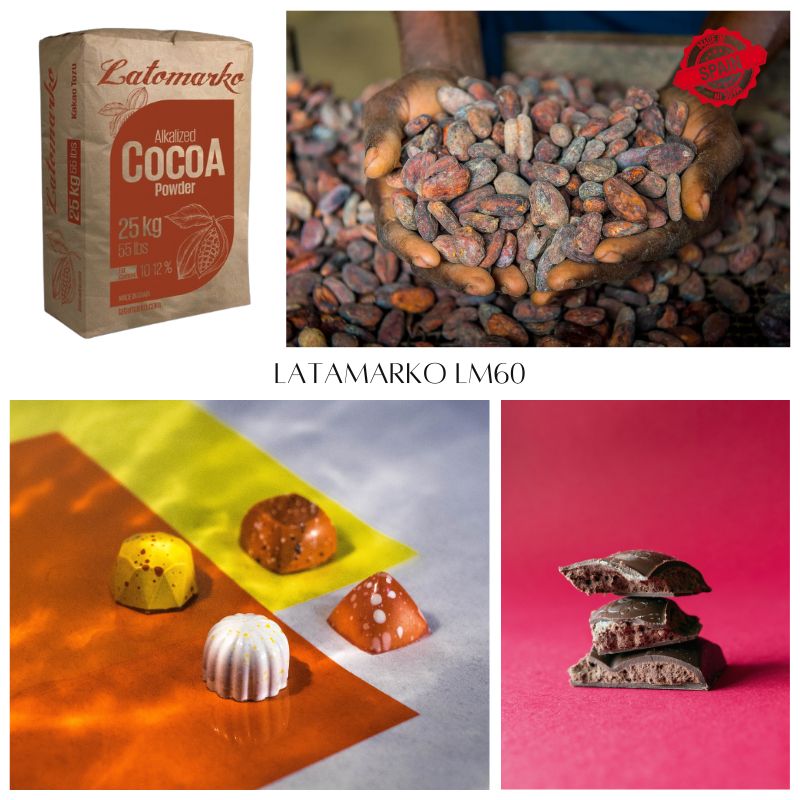
Why UAE Chocolate Manufacturers Prefer Halal-Certified Cocoa Ingredients
Why UAE Chocolate Manufacturers Prefer Halal-Certified Cocoa Ingredients
In the United Arab Emirates, the chocolate industry is growing rapidly—fueled by rising consumer demand for premium quality, clean-label ingredients, and religious compliance. As a result, chocolate producers are prioritizing Halal-certified cocoa ingredients in their sourcing strategies.
Here’s why more UAE-based chocolate manufacturers are choosing Halal-certified cocoa powders, butters, and derivatives for their formulations.
1. Consumer Trust and Market Expectation
With a predominantly Muslim population, UAE consumers expect chocolate products to be Halal-compliant—even when there are no obvious non-Halal ingredients. Halal certification builds trust, especially when listed visibly on packaging.
-
Boosts customer confidence
-
Supports brand image in supermarkets and duty-free shops
-
Meets demand for ethical and traceable sourcing
2. Compliance with UAE Food Regulations
Authorities such as ESMA (Emirates Authority for Standardization and Metrology) require documentation for Halal food imports. Chocolate factories that use Halal-certified cocoa can:
-
Avoid customs delays
-
Ensure fast approval from Dubai Municipality
-
Meet standards for export to other GCC countries
This makes Halal certification not just a marketing tool, but a regulatory necessity.
3. Access to Government and Institutional Contracts
Food suppliers looking to work with hospitals, airlines, or government tenders in the UAE must present Halal certificates for all ingredients. Chocolate manufacturers using non-certified cocoa often miss these opportunities.
Halal cocoa ingredients unlock access to:
-
Airline catering programs
-
Hotel chains and catering distributors
-
UAE school nutrition and military supply programs
4. International Appeal for Export-Ready Brands
Many UAE chocolate brands export their products to Saudi Arabia, Kuwait, Oman, and beyond. In these markets, Halal compliance is strictly enforced.
Using Halal-certified cocoa powder, such as those from Latamarko, makes products instantly ready for cross-border distribution with minimal reformulation or relabeling.
Conclusion
Halal-certified cocoa ingredients are no longer optional—they are essential for growth, compliance, and consumer loyalty in the UAE. Chocolate manufacturers that invest in sourcing from certified producers ensure smoother operations, broader market access, and higher brand integrity in an increasingly competitive landscape.
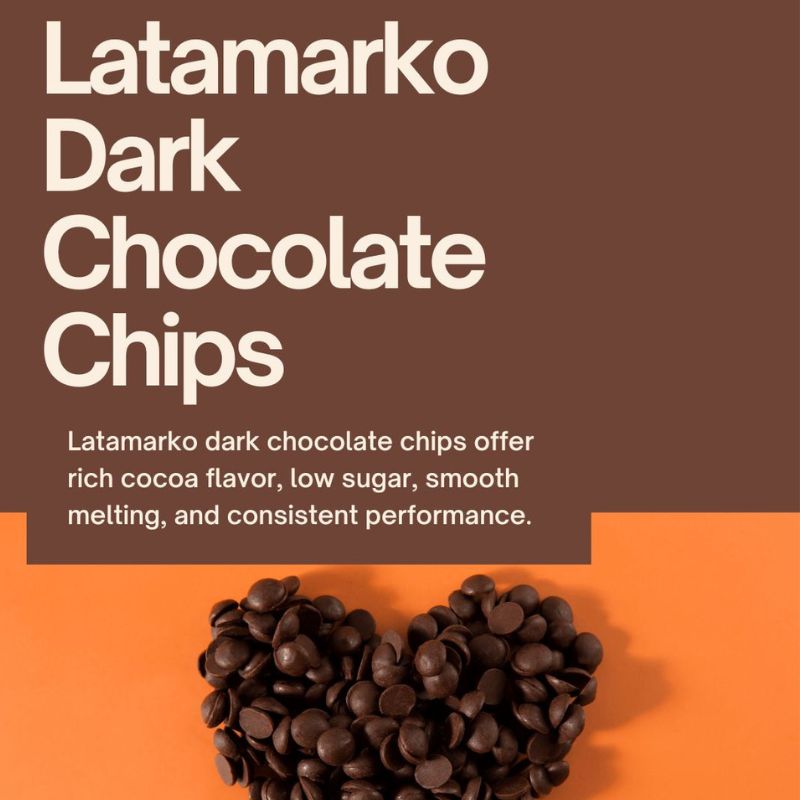
Importing Halal Cocoa Powder from Europe to the UAE: What You Need to Know
Importing Halal Cocoa Powder from Europe to the UAE: What You Need to Know
As the demand for Halal-certified food ingredients grows across the Middle East, the UAE has become a central hub for importing and distributing premium cocoa products. For food manufacturers, chocolate producers, and distributors, understanding how to source Halal cocoa powder from Europe is key to maintaining product quality and regulatory compliance.
What Makes European Cocoa Powder So Popular in the UAE?
European cocoa manufacturers are known for their advanced processing standards, stable product quality, and full documentation. For UAE importers, this means:
-
Reliable supply chains
-
Certified production methods
-
Compatibility with ESMA and GSO requirements
But not all suppliers are created equal. That’s why many UAE buyers choose to work with trusted producers who specialize in Halal-certified cocoa ingredients—such as Latamarko.
Latamarko: A Trusted Manufacturer in Spain
Latamarko is a European-based manufacturer of alkalized cocoa powder, designed specifically for industrial use in the food and chocolate sectors. With a production facility in Spain and a focus on Halal compliance, Latamarko provides:
-
Halal-certified alkalized cocoa powder
-
Full documentation: Certificate of Origin, Health Certificate, Analysis Report
-
Consistent flavor, color, and pH control
-
Smooth customs clearance into the UAE
Through its export partner MT Royal, Latamarko products are delivered efficiently to Dubai, Abu Dhabi, Sharjah, and other GCC ports.
Steps to Import Halal Cocoa from Europe
-
Request technical specs and Halal documentation
-
Obtain a Proforma Invoice from the manufacturer
-
Plan shipment (CFR/CIF) to UAE ports like Jebel Ali or Khalifa Port
-
Prepare clearance with ESMA or Dubai Municipality requirements
-
Receive and test samples for final production use
Latamarko simplifies this entire process, offering responsive communication, Arabic/English support, and proven experience in handling UAE-bound orders.
Conclusion
Importing Halal-certified cocoa powder from Europe to the UAE requires the right partner—one that understands both international quality and local regulations. Latamarko, with its reliable products and fast delivery through MT Royal, offers everything UAE chocolate manufacturers need to meet both Halal and performance expectations.
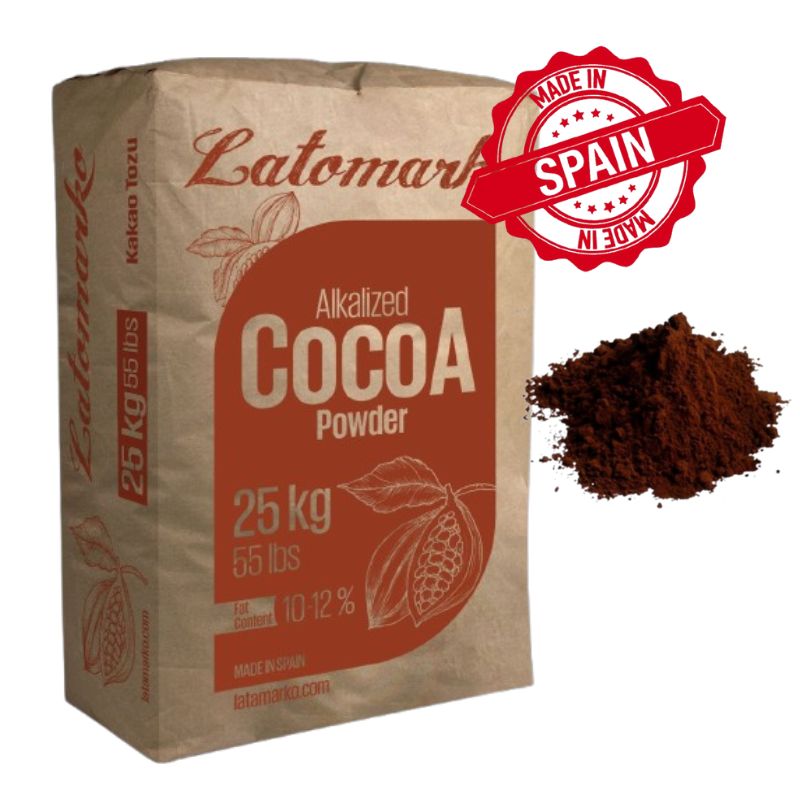
Halal Cocoa vs. Conventional Cocoa: What’s the Difference for End Consumers?
Halal Cocoa vs. Conventional Cocoa: What’s the Difference for End Consumers?
In a region like the UAE, where consumer awareness of food origins and religious compliance is high, the difference between Halal cocoa and conventional cocoa is more than a technical detail—it’s a factor that directly influences purchasing decisions.
But what sets Halal-certified cocoa powder apart from its conventional counterpart, and why does it matter to everyday consumers?
1. Transparency and Trust
Halal cocoa comes with official certification verifying that it is free from non-permissible substances such as alcohol or animal-derived emulsifiers. These certifications are typically issued by globally recognized authorities such as ESMA (UAE) or IFANCA.
Conventional cocoa powder, on the other hand, may not offer the same level of transparency—especially regarding processing agents or potential cross-contamination.
For UAE consumers who value religious integrity, Halal cocoa provides peace of mind and full traceability.
2. Clean Label Expectations
Modern consumers—especially younger generations in Dubai and Abu Dhabi—are increasingly focused on clean-label ingredients. Halal cocoa powder often aligns better with this trend because:
-
It avoids synthetic or questionable additives
-
It’s processed under certified hygienic conditions
-
Its sourcing and documentation are fully traceable
Halal certification isn’t just religious—it’s also seen as a mark of purity and ethics.
3. Expanded Market Reach
Brands that use Halal-certified cocoa can serve a broader audience, including:
-
Muslim consumers in the UAE and GCC
-
International halal product buyers
-
Institutional clients such as airlines, schools, and hotels
This makes Halal cocoa more commercially strategic for food producers and exporters.
Latamarko: A Consumer-Centric Cocoa Brand
One example of a company aligning with consumer trust is Latamarko, a Spanish manufacturer that offers Halal-certified alkalized cocoa powder. With strict quality controls and full certification, Latamarko products are trusted by food brands throughout the Middle East and especially in the UAE market.
Conclusion
For consumers in the UAE, Halal-certified cocoa powder means more than just religious compliance—it signals quality, cleanliness, and brand values. As awareness continues to grow, choosing Halal over conventional is not just the safer choice—it’s the smarter one.
Latamarko’s Halal-Certified Cocoa Ingredients: From Spain to the UAE
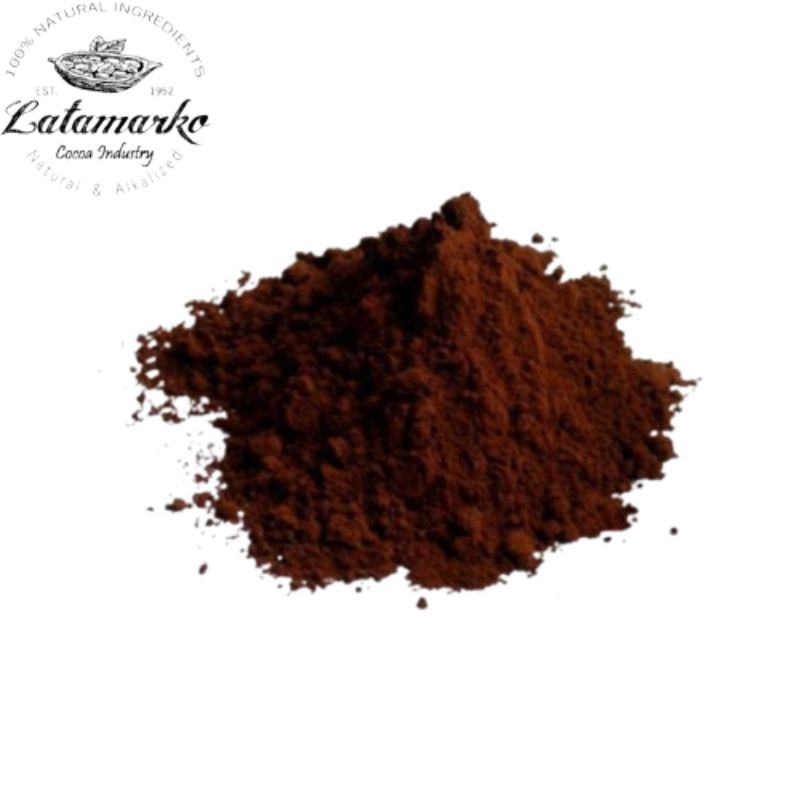
As the demand for high-quality, Halal-certified cocoa ingredients continues to rise in the UAE and across the Middle East, manufacturers are looking for reliable partners that combine international production standards with religious compliance. One such trusted name is Latamarko—a Spanish-based manufacturer specializing in Halal-certified cocoa powder and derivatives for the food industry.
European Manufacturing, Global Reach
Latamarko operates a modern cocoa processing facility in Spain, focused on producing alkalized cocoa powder and other cocoa derivatives for industrial use. What sets Latamarko apart is its commitment to:
-
Consistent color and flavor across all batches
-
Clean processing techniques without alcohol or Haram additives
-
Strict adherence to European food safety and quality systems
All Latamarko products are manufactured in accordance with Halal certification standards, making them ideal for use in the UAE’s regulated food and beverage sector.
Certified Halal for UAE and GCC Markets
Halal compliance is non-negotiable for many food manufacturers in the UAE. Latamarko’s cocoa ingredients are:
-
Certified by recognized international Halal bodies
-
Compliant with ESMA, GSO, and Dubai Municipality import regulations
-
Backed by full technical documentation (lab reports, origin certificates, and health certificates)
This allows chocolate makers, bakeries, beverage brands, and confectionery companies to use Latamarko cocoa with confidence in both local and export-oriented products.
Fast Delivery with MT Royal
To ensure quick and efficient supply to clients in the Middle East, Latamarko works closely with MT Royal, a leading export partner based in Turkey. MT Royal facilitates:
-
Fast shipments to Dubai, Abu Dhabi, Sharjah, and GCC ports
-
Proforma invoicing, export compliance, and customs documentation
-
Localized support in Arabic and English
Whether you’re a large industrial buyer or a growing chocolate startup, Latamarko and MT Royal make Halal-certified cocoa sourcing simple and secure.
Conclusion
From Spain’s modern production lines to shelves in Dubai and beyond, Latamarko’s Halal-certified cocoa ingredients are helping food brands deliver trust, taste, and quality in every bite. With a commitment to compliance and customer satisfaction, Latamarko is your go-to cocoa partner in the UAE
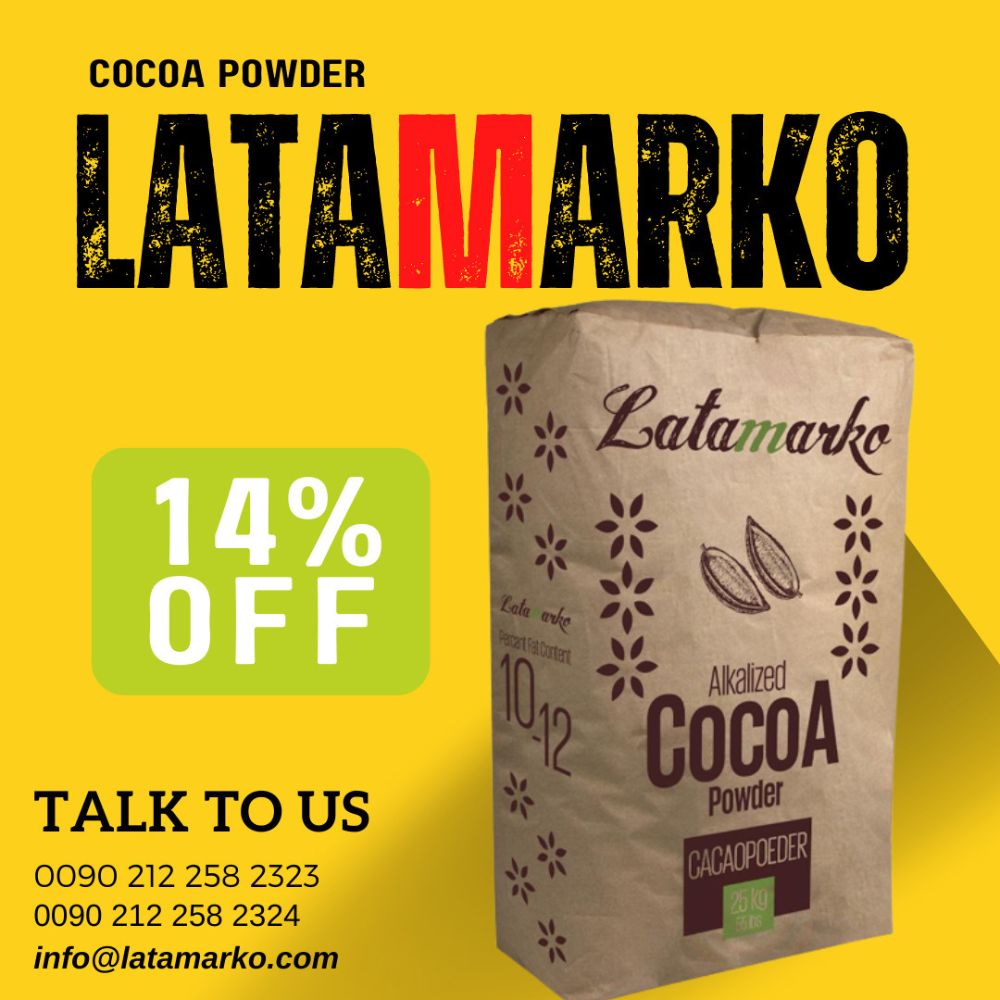
Meeting UAE Food Regulations with Halal Cocoa Products
Meeting UAE Food Regulations with Halal Cocoa Products
The UAE food market is one of the most tightly regulated in the Middle East. With a growing population of health-conscious and religiously observant consumers, food safety and Halal compliance have become top priorities for manufacturers and importers alike.
For companies involved in chocolate, confectionery, bakery, and beverage production, using Halal-certified cocoa products is no longer optional—it’s a regulatory requirement.
Understanding the Role of ESMA and Dubai Municipality
The Emirates Authority for Standardization and Metrology (ESMA) plays a key role in setting food import standards across the UAE. In addition, local municipalities such as Dubai Municipality and Abu Dhabi Agriculture and Food Safety Authority (ADAFSA) oversee food approvals and product registration.
To comply with these regulations, cocoa-based products must:
-
Be certified Halal by an ESMA-recognized authority
-
Include a clear Certificate of Origin and Halal Certificate
-
Provide lab analysis reports confirming absence of contaminants
-
Match label claims with actual product formulation
Any discrepancies can result in shipment delays, rejections at port, or removal from retail shelves.
Latamarko: Fully Compliant Cocoa Ingredients
This is where Latamarko stands out. As a European manufacturer of Halal-certified alkalized cocoa powder, Latamarko provides:
-
Full documentation aligned with UAE import requirements
-
Consistent quality and traceable production batches
-
Clean processing without alcohol or animal-based additives
-
Packaging formats suitable for industrial food factories in the region
Latamarko products are approved and accepted by UAE food regulators thanks to the company’s focus on compliance and transparent supply chains.
Streamlined Imports Through MT Royal
To simplify the regulatory process, MT Royal—Latamarko’s export partner—offers full support for:
-
Proforma invoices and COs in Arabic and English
-
Shipment coordination from Spain or Turkey
-
Technical support for product registration with UAE authorities
This allows food manufacturers in the UAE to import cocoa ingredients with full peace of mind, avoiding bureaucratic bottlenecks and saving time.
Conclusion
Navigating food regulations in the UAE requires partners who understand the system. With Latamarko’s Halal cocoa powder and MT Royal’s export expertise, you can focus on growing your brand while staying fully compliant with the region’s highest standards.
Building Consumer Trust with Halal-Certified Cocoa in the GCC Region

In the competitive world of food manufacturing, especially in the Gulf Cooperation Council (GCC) countries, building and maintaining consumer trust is a top priority. One of the most effective ways to achieve this in Muslim-majority markets is by using Halal-certified ingredients—and cocoa is no exception.
As chocolate consumption rises across the GCC, so does the demand for products that align with both religious and ethical values. For manufacturers, Halal-certified cocoa powder is more than just a compliance measure—it’s a powerful brand asset.
Why Halal Certification Builds Trust
In markets like the UAE, Saudi Arabia, Kuwait, and Oman, Halal certification:
-
Reassures Muslim consumers about product purity
-
Aligns brands with transparency and ethical sourcing
-
Helps meet government and retail requirements
By displaying official Halal logos on product packaging, brands can instantly connect with a wide segment of health-conscious and religiously observant shoppers.
Consumer Perception of Halal Cocoa Products
Today’s consumers are well-informed and often research the origin and certification of food ingredients before purchase. In this environment, cocoa products labeled “Halal-certified” signal:
-
No alcohol or animal-derived ingredients
-
Clean production processes
-
Clear traceability and international standards compliance
Whether it’s a chocolate spread on a supermarket shelf or a cocoa-based dessert in a café, Halal labeling increases confidence and purchase likelihood.
Latamarko: A Cocoa Brand Built on Trust
One brand helping build this consumer trust in the GCC is Latamarko, a European manufacturer of Halal-certified alkalized cocoa powder. With a commitment to clean-label processing and international Halal standards, Latamarko is now trusted by confectionery and chocolate manufacturers across the region.
Through its export partner MT Royal, Latamarko ensures not just Halal compliance, but also reliable delivery, proper documentation, and local support for businesses in the Gulf.
Conclusion
In the GCC region, consumer trust starts with ingredient integrity. Halal-certified cocoa powder from reliable manufacturers like Latamarko is helping brands grow their presence, satisfy regulatory requirements, and build stronger connections with their customers.
Alkalized Cocoa Powder for Chocolate Manufacturing in the UAE


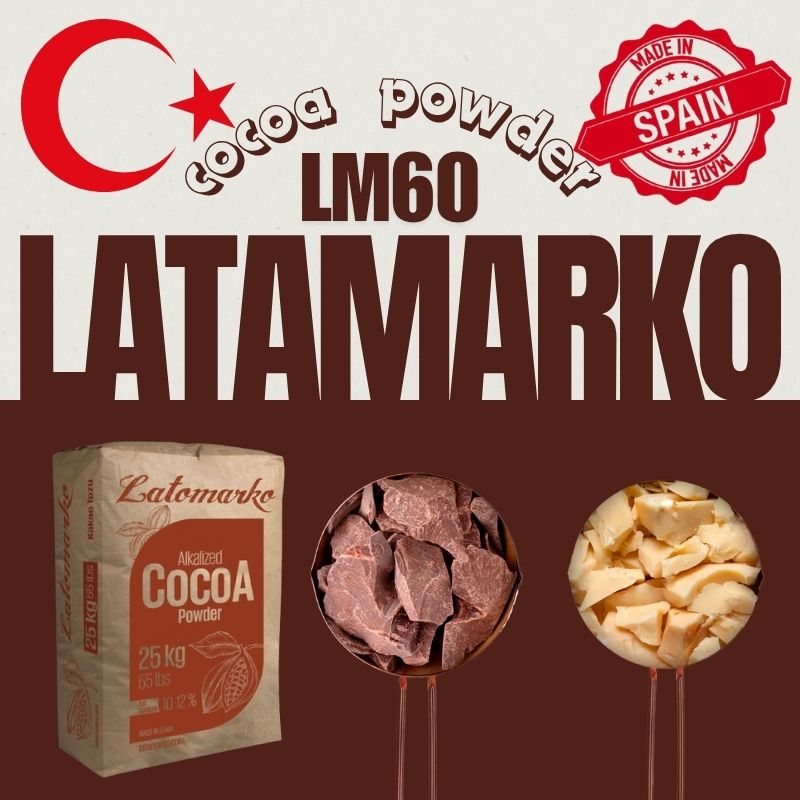
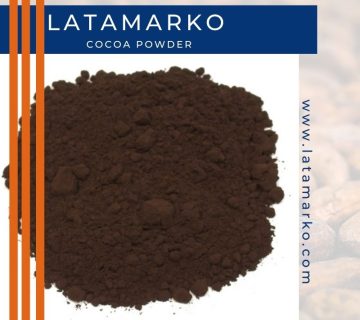
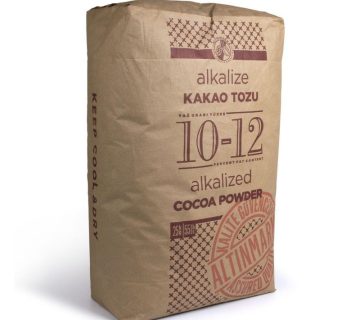
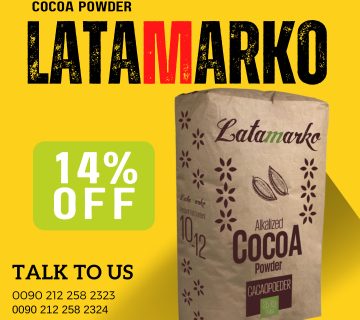
No comment